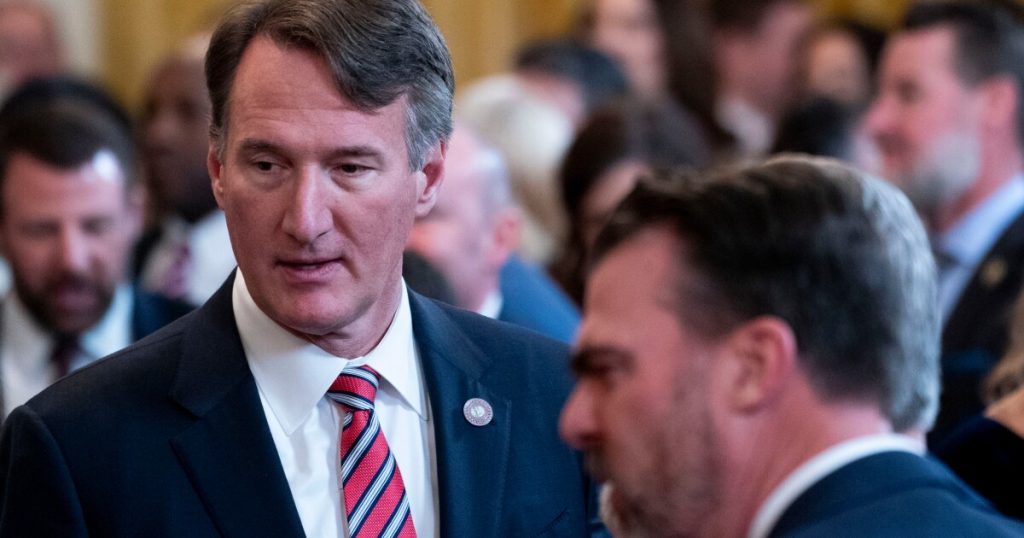Stefani Reynolds/Bloomberg
Virginia Governor Glenn Youngkin vetoed a bill that would effectively ban fintech lending from the state as part of a flurry of actions taken on bills sent to his office during the state’s 2025 General Assembly session.
Critics of the bill claimed that it would severely limit credit access in the state because language was broad enough to capture all third-party vendors that work with banks or originate loans. The American Fintech Council estimated that about 235,000 or 3% of Virginians totaling $800 million in lending each year would be adversely affected by the bill.
The law was one of 157 bills vetoed by the Republican governor, who has made increasing business investment in the state a central pillar to his platform. Of the 906 bills sent to the governor’s desk, 599 were signed and 159 were amended.
“I have vetoed bills that I think will take the Commonwealth backward by raising the cost of living, hurting our strong job growth, stifling innovation, undermining our All-American All-of-the-Above Power and Energy Plan or making our communities less safe,” Governor Youngkin said in a statement.
The American Fintech Council, which previously sent a letter to Youngkin urging him to veto the bill, praised the governor.
“Governor Youngkin’s decision to veto SB 1252 protects access to safe, responsible credit for hundreds of thousands of Virginians,” Phil Goldfeder, CEO of AFC, said in a statement. “The bill, while well-intentioned, would have created unnecessary barriers for consumers seeking flexible financial tools and introduced legal uncertainty for responsible providers. AFC has been deeply engaged on this issue from the start—meeting with lawmakers, submitting formal comments, and mobilizing a coalition of responsible providers to raise concerns about the bill’s impact. We remain committed to working with lawmakers in Virginia and across the country to ensure policy solutions reflect the realities of today’s financial landscape.”
An earlier version of the Virginia bill from the House specifically called out earned wage access as a loan, a provision that was later dropped in the Senate’s markup.
The vetoed bill is just one of many
Many states are carving out earned wage access laws in the

